What Wilson (the volleyball) Taught Me About Loneliness
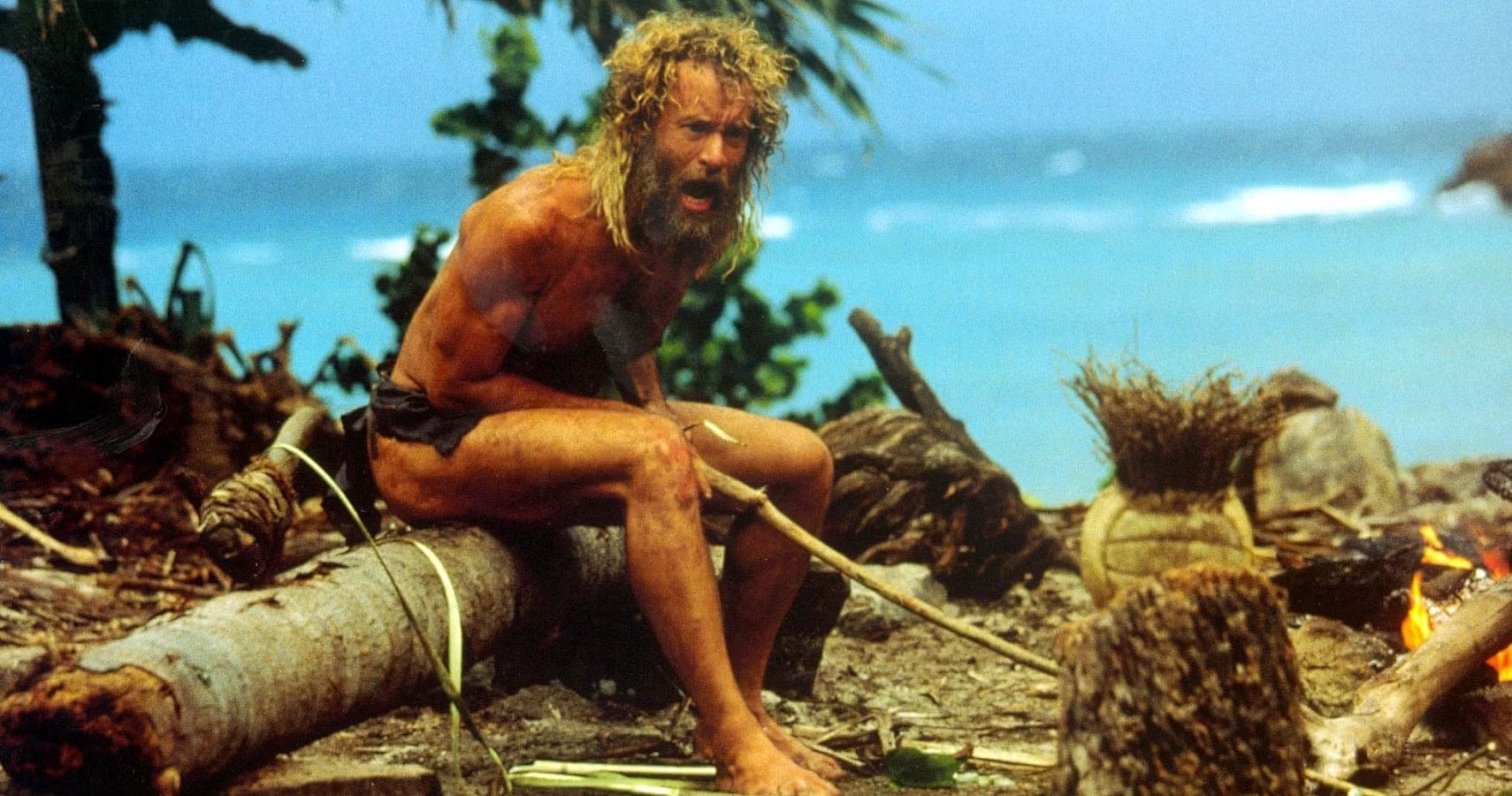 Chuck, stripped of everything, sits in raw anguish—no clocks, no comfort, no company. Just survival.
Chuck, stripped of everything, sits in raw anguish—no clocks, no comfort, no company. Just survival.
You know how sometimes a movie doesn’t just entertain you? A movie that doesn’t feel like just a movie? It feels like someone quietly sat next to you, told you a story, and somehow—without you realizing—you started seeing life a little differently?
That’s how Cast Away hit me.
I thought I was signing up for a classic survival movie. Plane crash, deserted island, dramatic rescue—done. But instead, I found something much deeper. A story about silence. About losing everything and still waking up the next day. About what it means to stay human when the world forgets you. And about a volleyball named Wilson who somehow ended up leaving a mark on my heart.
A Quick Glimpse of the Story
Chuck Noland is a guy who lives by the clock—literally. He’s a FedEx systems analyst who’s always on the move, always in control. But when his plane crashes over the Pacific, everything changes. He washes up on a deserted island with no tools, no phone, no people. Nothing but himself, a few FedEx packages, and the sound of waves.
What follows is not a fast-paced survival flick. It’s something slower. More patient. More real.
Time stretches. Seasons pass. Days blur into each other.
And in the middle of all that loneliness, Chuck does something that seems silly at first. He picks up a volleyball, draws a face on it with a bloody handprint, and starts talking to it.
He names it Wilson.
And that’s where the becomes painfully human.
Why Did Chuck Bond So Deeply with Wilson?
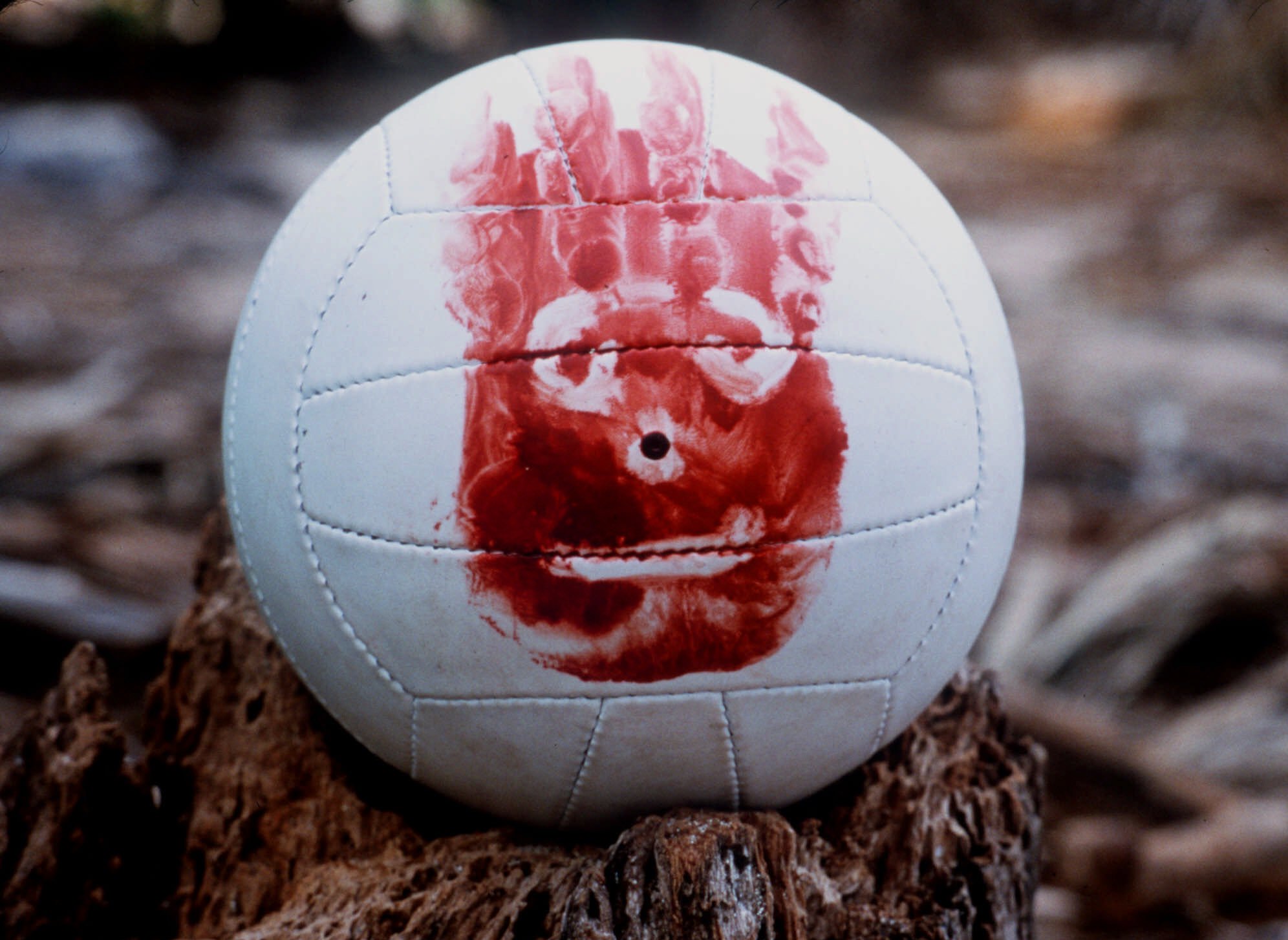
A blood-smeared imprint became a face. A face became a friend. A friend became a lifeline.
It’s easy to laugh in the beginning. A grown man, completely alone, talking to a ball. But the more you sit with it, the more you realize: Wilson wasn’t a joke. He was Chuck’s lifeline.
1. We’re Social Beings—Even When There’s No One Around
No matter how introverted or independent we think we are, our brains are wired for connection. Studies on extreme isolation show that people start talking to themselves, imagining voices, or even hallucinating when they’re left totally alone for long periods.
So Chuck talking to Wilson wasn’t weird. It was completely natural. It was completely human.
🧠 Psychologists call this anthropomorphism—when we give human traits to non-human things. It's why we name our cars, talk to our pets, or keep old hoodies during hard times.
Chuck wasn’t loosing his mind. His brain was trying to survive.
2. Wilson Wasn’t Just a Friend—He Was a Mirror
Over time, Wilson becomes more than a volleyball. Chuck starts arguing with him. Joking with him. Confiding in him. That’s important—because when you have no one to talk to, you need a place to just throw away your thoughts.
This is what psychologists call externalization—when you take what's inside you (your fears, your feelings, your confusion) and give it a voice outside of you.
We do this all the time without realizing it:
- Journaling when we’re overwhelmed
- Talking to ourselves in the mirror before a tough day
- Venting to a friend just to “get it all out”
Chuck didn’t have those things. He had Wilson.
And Wilson listened.
3. Wilson Represented More Than We Think
Wilson was more than a volleyball. It became a symbol of Chuck’s routine, purpose, and most importantly, his sanity.
He gave Chuck someone to wake up to. Someone to care about. Someone to miss. When you’re alone for that long, even pretending to care for something is better than not caring at all.
Wilson wasn’t just a ball. He was Chuck’s reminder of being human.
So when Chuck loses Wilson (and trust me, you’ll feel it), it’s not about losing a “thing.” It’s about losing a part of himself. That moment is quietly devastating.
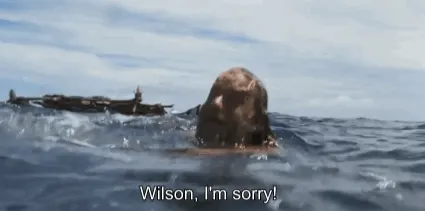
What Does This Teach Us About Ourselves?
Honestly? So much.
It reminds us that being human isn’t about having everything figured out. It's about holding on to something—anything—when life gets stripped down to its hardest parts.
Here are just a few things that stayed with me:
1. We Create Meaning to Stay Alive
Even when nothing makes sense, we still find meaning—whether it’s in an object, a memory, or a routine. Chuck gave life to a volleyball, not because he was delusional, but because that meaning gave him life in return.
2. Loneliness Changes What Matters
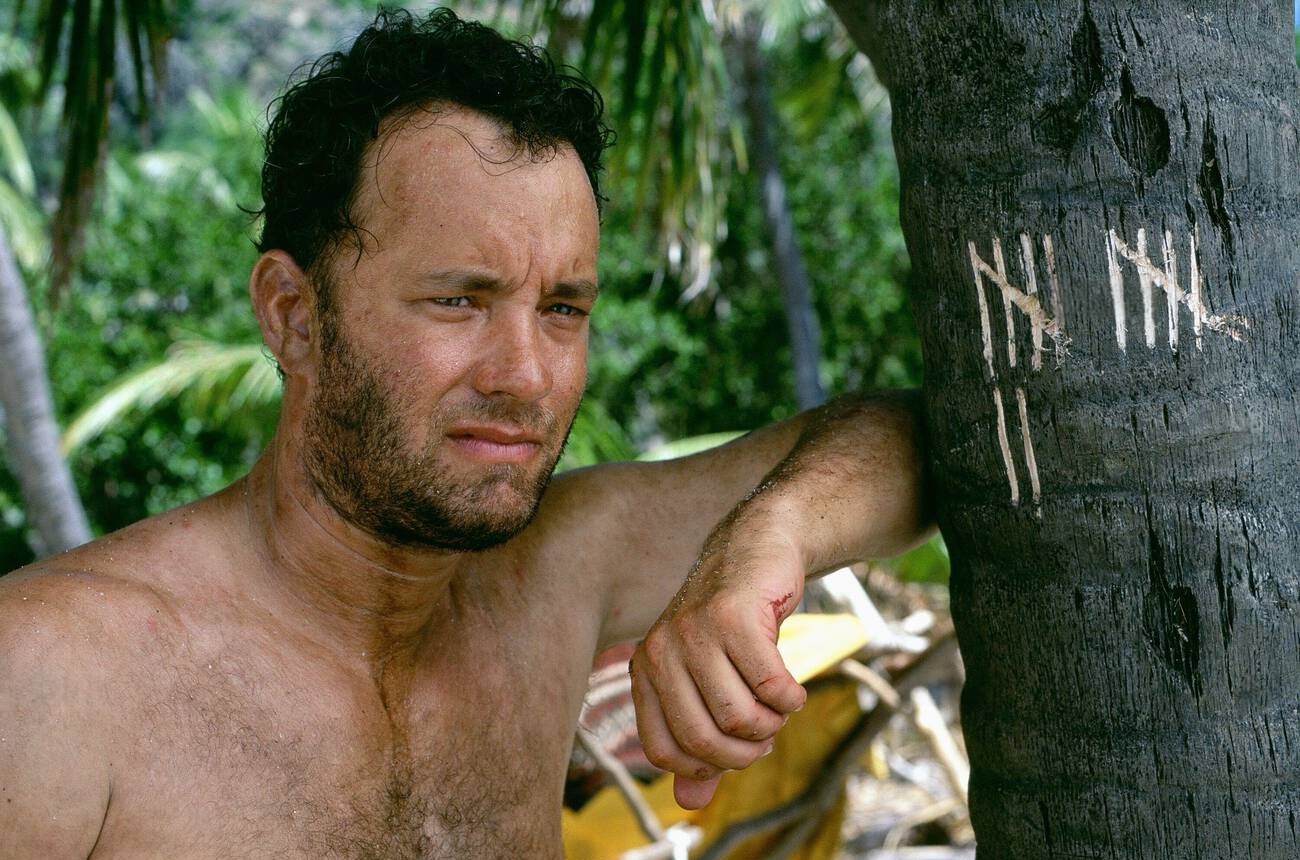
Alone with his thoughts, Chuck leans into silence—searching for something, anything, to talk to.
Before the crash, Chuck was obsessed with time. Deadlines. Meetings. Schedules.
But when he had nothing but silence, none of that mattered anymore. The only thing that did… was someone to talk to. Even if it wasn’t real.
3. We All Have a Wilson
Think about it.
We’ve all had a “Wilson” at some point in life:
- A childhood toy you told secrets to
- That one t-shirt you wore during hard times
- The playlist that got you through heartbreak
- A diary, a voice note, a prayer whispered to the ceiling
These little things are more than things. They’re survival tools. Emotional anchors. And maybe they don’t make sense to anyone else—but they help us hold on.
You Don’t Need to Be on an Island to Feel Alone
That’s the part that really gets to me.
Most of us will never wash up on a beach with no food, no phone, and no people. But life throws other kinds of isolation at us—heartbreak, grief, change, uncertainty. And in those moments, we find ourselves in our own kind of “island.”
That’s when the small things matter the most. The things we bond with. The routines we keep. The weird habits that keep us going.
That’s where we find our Wilsons.
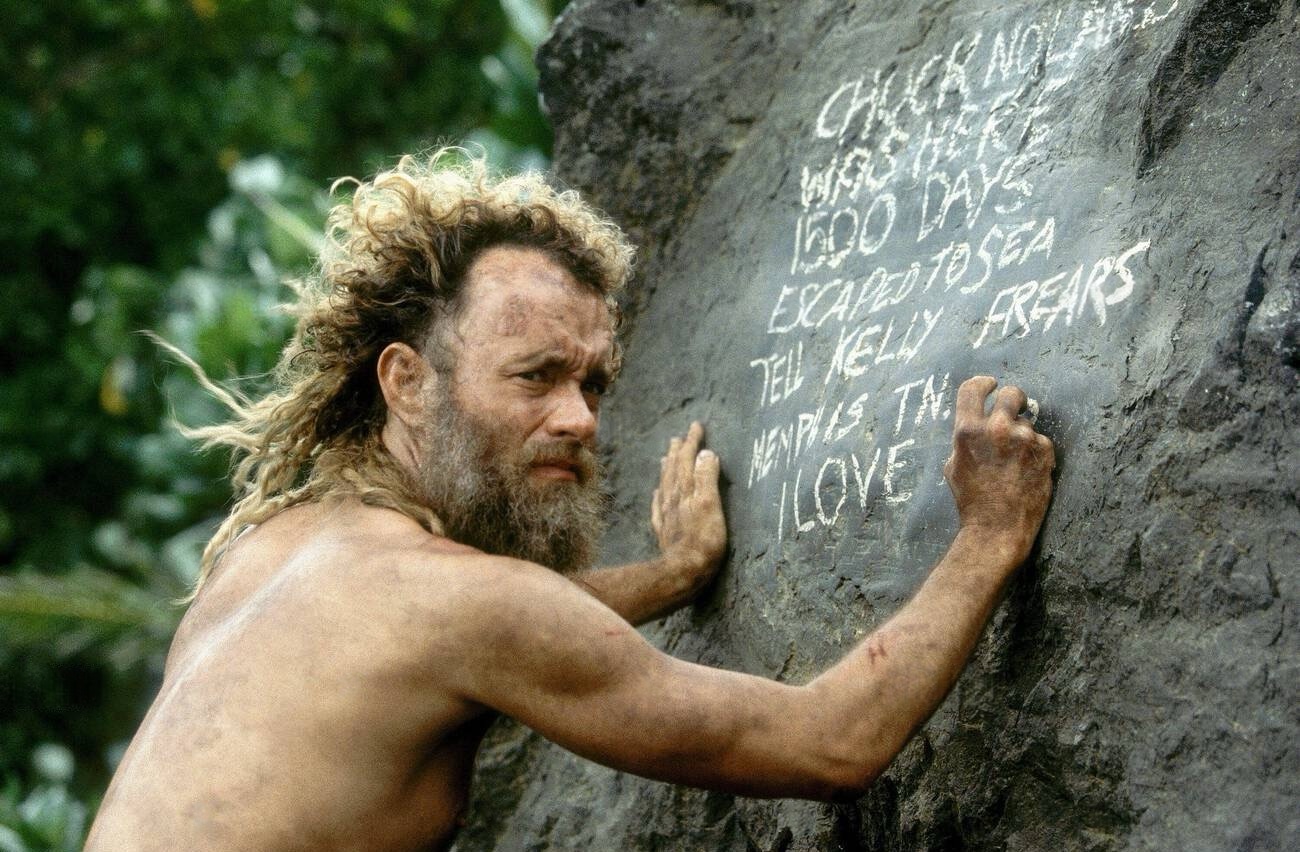 After 1,500 days alone, he didn’t write about survival. Instead he wrote about love.
After 1,500 days alone, he didn’t write about survival. Instead he wrote about love.
One Last Thing
Cast Away may be about a man stuck on an island.
But really, it’s a story about staying human when you feel most forgotten.
It reminded me that strength doesn’t always look like fighting storms or building fires. Sometimes, it’s just waking up the next day and talking to your version of Wilson—whatever or whoever that might be.
And if you’re in one of those seasons right now—where you feel alone or lost—I hope you let yourself find your Wilson. It may look silly to the world, but to you, it could be the very thing that gets you through.